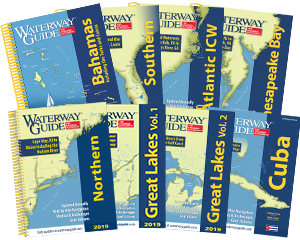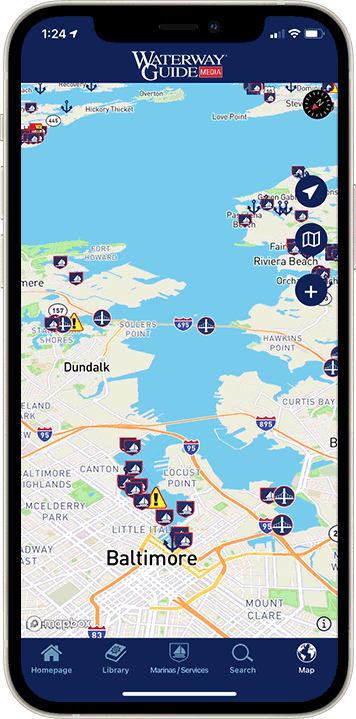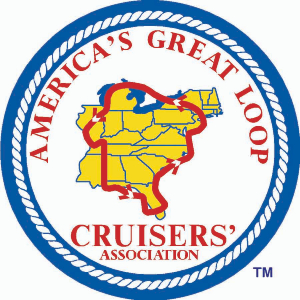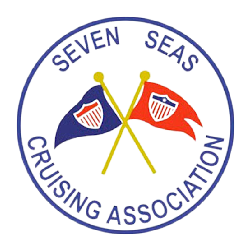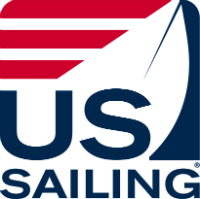A bill is being considered in the Florida Legislature this year that would eliminate anchoring within 200 yards of the shoreline of the City of Miami Beach between the McArthur and Julia Tuttle Causeways. As most of the remainder of Biscayne Bay is very shallow, this bill would eliminate overnight anchoring in most of the Bay, which is a much-needed staging ground for slower boats heading to or from the Bahamas or the Keys. If the attempt to put an end to overnight anchoring in this area doesn't sound egregious on the surface, please note that there are other options available and many regulations already in place to solve Miami Beach's perceived problems with boats anchored in Biscayne Bay long term.
The Background
Recreational boating organizations have been working for years in Tallahassee to preserve your ability to anchor in Florida. In 2015 when cruisers were absent from the capitol, waterfront homeowners and their lobbyist were able to push through a bill that eliminated overnight anchoring in three of the Venetian Islands, which are part of the City of Miami Beach and are in Biscayne Bay. After losing those anchorages, several cruising associations became active, and in the nearly 10 years since then, have fought successfully to ensure that the many bills filed to close more anchorages to overnight stays were defeated.
In 2021, as both sides grew weary of the year-after-year fight, the stakeholders reached a compromise that received widespread support, passed in both houses of the legislature, and was signed into law by the Governor. The compromise created Anchoring Limitation Areas (ALAs) and a process by which counties can establish them. ALAs cannot be more than 100 acres in size, must be marked, and the aggregate total of ALAs in a specific county may not be more than 10% of the navigable waterways. A county must work through the Florida Fish & Wildlife Conservation Commission (FWC) and a public hearing process to establish an ALA. This was a win for cruisers because even where an ALA is in place, vessels can remain at anchor for up to 45 days, which is more than enough for active cruisers. For the cities and counties, ALAs were said to give more "teeth" to their legal authority to rid the waterways of derelict and long-term-stored vessels that haven't moved for more than 45 days. As part of that legislation, the three Venetian Islands that were already closed to overnight anchoring were grandfathered with that status, but the expectation was that new anchoring restrictions would come via the new ALA procedure.
This Year
Instead of following the process set forth to establish an ALA through the county and FWC, the City of Miami Beach chose to crack open the grandfathered part of the state code to attempt to close its shoreline, and 200 yards beyond it, to overnight anchoring. While places like Jacksonville, Hollywood and Pinellas County are using the ALA as expected, Miami Beach decided to bypass that process in favor of a complete closure.
When working on these types of issues, common ground can sometimes be found by seeking to understand the reason for the bill or the problem the bill is intended to solve. Of note in this case is that the reason the bills' sponsors say they need this law appears to keep changing. When they argued that boaters were discharging waste and polluting the Bay, boaters countered that such actions are already illegal and ending the problem would require more enforcement, not more laws. When they argued that the boats anchored are abandoned and/or derelict, boaters pointed out that we, too, would like to clear the waterway of those vessels and that the 45-day anchoring limitation areas were introduced in 2021 to solve exactly that problem. Boaters suggested that going from the 45 days allowed in the ALA statute to zero days at anchor was arbitrary, but proponents of the bill wouldn't budge from their position. It appears that the real problem is waterfront homeowners who simply don't want to see boats outside their windows.
Responsible cruisers are against pumping blackwater overboard, abandoning a boat and other bad behavior on the waterway. But arguments that more enforcement is needed, rather than more restrictions, have fallen on deaf ears as the bills sailed through two House committee hearings and one Senate committee hearing to date.
Following the Senate committee hearing on January 23rd, boaters started to see some signs of progress for their position. During the hearing, Senator Mayfield requested that boaters meet with the Senate bill's sponsor to find a solution that works for everyone. Since then, a coalition of recreational boating associations, which incudes America's Great Loop Cruisers' Association (AGLCA), DeFever Cruisers, Marine Trawler Owners Association (MTOA), and Seven Seas Cruising Association (SSCA) have been working to find a way to keep these areas open for boaters that will satisfy the City of Miami Beach.
Make no mistake. If Miami Beach is successful in adding the areas within 200 yards of their shoreline to the places where overnight anchoring is prohibited, there will be a slew of additional municipalities doing the same next session.
BoatUS has set up an easy way for Florida residents to have their voice heard by sending a message to their Florida House and Senate legislators on this issue. Non-Florida residents may send a message by signing a petition here. Please get involved!

